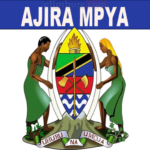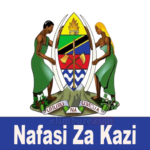INDIRECT RULE
INDIRECT RULE
This is a colonial system of administration, whereby, African traditional rules were involved in administering their fellow Africans at the local level while the colonial officials and administrators administered at the higher level. OR
It is a system of administration used by the British colonial government to govern the people through the use of traditional rulers and traditional political institutions
The indirect rule system was introduced into to Nigeria by Lord Fredrick Lugard who was known to be the father of indirect rule in Nigeria in 1990. The British officials in Nigeria formulated and enforced policies and laws through the traditional rulers who only served as intermediaries between the people and the British government.
However, the cultures and traditions of the people were respected and retained by the British authorities in order to make them more acceptable and welcomed by the people. This system worked out well due to the cooperation of the traditional chiefs who claimed that since their cultures and traditions were not tampered with, they have no problem dealing with the British officials, but this was to some extent.
The motive for the application of indirect rule
The major reasons that made Europeans to initiate and apply the indirect rule system of administration in Africa were:
1.The Europeans did not want to interfere with the African traditional systems of administration.
2.The Europeans administrators wanted their instructions or orders to appear as if they were emanating directly from the African traditional rulers. This was aimed at reducing African resistances against the European policies.
3.The Europeans wanted the African chiefs to appear as the ones giving orders to their subordinates (fellow Africans).
4. The Europeans introduced the indirect rule system with an assumption of civilizing the Africans.
5. In other areas, indirect rule was used when the system of direct rule had proved failure. For example, the British colonial government decided to use indirect rule in Tanganyika to avoid what happened to the Germans.
Reasons for the British to use indirect rule in their colonies
The British colonial government used indirect rule in most of her colonies in Africa because of the following reasons.
1. Britain drew more attention to her colony in India, thus it was difficult for her to introduce direct rule in Africa.
2. Britain did not have enough manpower to administer her colonies in Africa. For instance, in 1900 it was reported that the British had only 42 British officials in her Nigerian colony. This number was not sufficient to administer the whole colony. The shortage of personnel was caused by lack of experienced workers. Moreover, British citizens were not willing to work in Tropical Africa for fear of Tropical diseases and other physical problems such as transportation.
3. Less funds were set by the British government for the maintenance of the colonies. It was convenient for the colonial administrators to use the indirect rule system in the colonies so as to reduce administrative costs.
4. The indirect rule proved to be effective and efficient in their Indian colony; therefore, the British government was inspired to apply it in Africa.
5. The British thought of using the indirect rule in order to overcome resistances from Africans. Consequently, Africans rulers were made to feel that their status was honored by British, as this system of administration gave them an opportunity of keeping some of the money corrected in form of taxes for their native treasuries. That money was spent for paying messengers and policemen salaries. However, the local African chiefs retained the money for their personal use.
6. Physical barriers such as poor infrastructure, presence of mountains, thick forests and dangerous animals in the colonial African forces the British to use indirect rule.
7. A language barrier between the British and the Africans forced the British to use indirect rule. Neither Africans nor Europeans understood the language of the other. Hence, they used interpreters.
Strength and weaknesses of indirect rule
The following were some of the strengths rule:
1. It avoided African resistance by appointing traditional rulers to rule on their behalf. Hence, all complaints were directed to traditional African rulers.
2.It was cheap, as local chiefs were used to mobilize their people to pay taxes and work as forced laborers.
2. Favourable political Atmosphere:The political atmosphere in Northern Nigeria at that period was favourable for the introduction of the system. The method of traditional administration at that time was very difficult for Britain to displace the Emirs from their position so aburuptly.
4. It reduced language difficulties: The system of indirect rule was adopted in Nigeria by Lord Lugard in order to reduce the problems posed by language. Lugard was aware that the people of Nigeria at that time did not speak nor understand English Language, and therefore going through traditional rulers to govern the people would reduce the language problems.
5. Vast Areas Involved: The large areas of Nigeria especially the Northern Nigeria where the system was first introduced contributed to the adoption of the system of indirect rule.
6. Its Beneficial Effects: Lugard introduced the system with the hope that it will be beneficial to both Europeans and Africans. For instance, by using traditional rulers, Lugard viewed it as a way of providing employment for them.
7. Its Cheapness: The system of indirect rule was adopted in Nigeria because, economically, it was not expensive. To employ and pay its personnal to run Nigeria as a whole could have been the highest stage of financial extravaganza on the part of Britain.
The following were some of the weaknesses of indirect rule:
1. Indirect rule created imbalance of development among African states. Areas which had local chiefs assisting the colonial government had development on social services like schools, hospitals and roads while those which had no chiefs in their areas had no or inadequate social services. Such situations had led to many conflicts among Africans after independence.
2. It had created social differences among Africans. The chiefs’ families and loyal families got privilege of getting social services such as education, hospitals and many more while the rest of the community were not getting such facilities.
3.Tribalism developed as an impact of indirect rule. African chiefs who were entrusted to rule on behalf of colonialists considered themselves superior to other in their land. For example, Kabaka Mwanga of Buganda created disunity among Ugandan when he declared the Buganda kingdom independent in 1960.
4. African chiefs became puppets of the administrators and did not serve their people.
5. The indirect rule cemented centralized bureaucracy through the use of the district commissioners.
6. The system of indirect rule alienated the educated elites in preference to the illiterate ones.
7. Traditional rulers were made to be autocratic as a result of power vested in them by the Indirect rule system.
8. The system brought about division between the traditional rulers who looked upon as British puppets and the alienated educated elites thereby, strengthening the policy of divide rule.
9. The system denied the people the power of appointment and deposition of cheifs which was given to the British governor.
10. The system contributed in the concentration of power in the hands of few traditional rulers thereby, marginalising majority of the people.
11. The system contributed in the delay constitutional development mainly because, the puppet cheifs did not want any change that may deny them of the enormous powers they were enjoying.
12. The appointment of traditional rulers (warrant cheifs) in Eastern Nigeria led to social, political and economic upheaval.
13. The concentration of too much powers in the traditional rulers led to serious abuse of power.
14. Traditional rulers under the system of indirect rule became corrupt and enriched themselves at the expense of their subjects as there cases of embezzlement and mis management of tax money.
15.The system denied the people the democratic system of checks and balance that were existing before the advent of the British.
16. Traditional rulers were deprived of their personal initiatives and the power to defend the interest of their people against British colonial rulers.
17. The system encouraged tribalism and sectionalism at the expense of national consciousness; no wonder one part of Nigeria did not want independence when other parts were clamouring for it.
18.The British indirect rule did not spell out how the system can metamorphose into a central government in Nigeria.
19. Another weakness of the system was its inability to state the limit of the functions of different local authorities which was one of the causes of many part of Nigeria, for example the Ana women riots of 1929.
20. Finally, the system had no universal application because it could not be applied to all environments, and that was why the system failed woefully in Eastern Nigeria.
The indirect rule in Tanganyika
After the First World War (WWI), all the German colonies including Tanganyika were redistributed among Europeans powers. Tanganyika became a mandated territory under the British rule. The British rule in Tanganyika used the intermediate traditional chiefs who ruled under ethnic groups.
The British administration system had several small units led by chiefs or headmen, who were just colonial paid servants. The African unit leaders (chiefs) had no power; they were subjected to removal from their positions if they could not fulfill the colonial duties.
Some of major duties of the African chiefs to the colonial administration were:
(a) To mobilize their fellow Africans to produce cash crops in their areas.
(b) To mobilize their fellow Africans to offer their labor force to mines and plantations of colonial governments.
(c) To mobilize people in their areas to participate in the constructions of roads, railways, bridges and collect all forms of taxes for the colonial government.
In order to exploit more African labor and natural resources, the British opted into using the local chiefs who ruled in the pre-colonial time due to the following reasons:
(i) They could easily mobilize their people to participate in colonial economy activities.








Very neat article.Really looking forward to read more. Fantastic.
We have a online store for selling Fresh CCs All Country. Our store is full automatic and high speed
I value the blog.Thanks Again. Really Great.
Wow, great blog post.Really thank you! Keep writing.
Muchos Gracias for your blog.Really thank you! Want more.
I am so grateful for your blog article.Really thank you! Awesome.
Thank you ever so for you blog.Really thank you! Keep writing.
I think this is a real great blog.Really looking forward to read more. Fantastic.
Wow, great blog article.Thanks Again. Keep writing.
I loved your blog article.Much thanks again. Much obliged.
I value the post.Really thank you! Keep writing.
Thanks so much for the article.Really looking forward to read more. Really Cool.
Major thankies for the article post.Much thanks again. Really Great.
A round of applause for your article.Really thank you! Awesome.